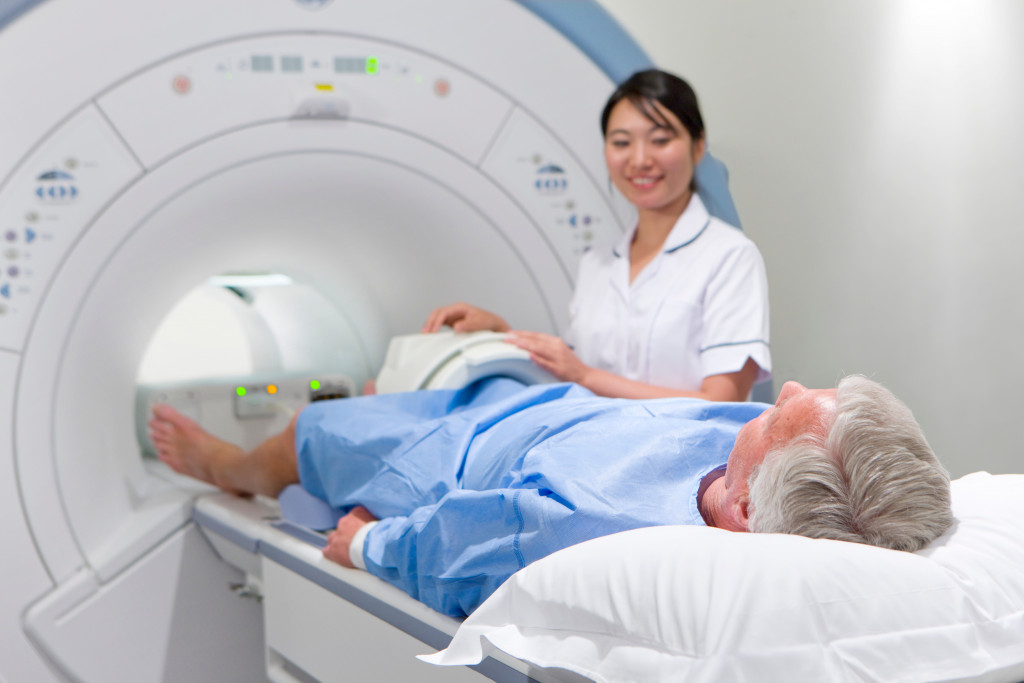- Gut health is essential in optimal athletic performance, from energy production to immune function and mental focus.
- A balanced diet with plenty of fiber, vitamins, and minerals can nourish the gut microbiome.
- Probiotics and prebiotics help promote a healthy balance of bacteria in the gut.
- Practicing stress management techniques, as well as quality sleep, can help improve gut health.
- Open MRI scans, stool analysis, food intolerance/allergy tests, and gut permeability tests can assess gut health issues.
Athletes constantly seek ways to improve their performance, from training to nutrition. Many athletes might not know that the secret to optimizing their fitness may lie in their gut health. The gut is home to trillions of microorganisms, collectively known as the gut microbiome, that play a critical role in overall health and athletic performance.
The gut performs several essential functions, such as digesting food, absorbing nutrients, and eliminating waste. The gut also houses most of the body’s immune system, acts as a barrier to toxins, and plays a crucial role in producing hormones.
When the gut is not functioning correctly, it can lead to several health problems, such as poor immune function, inflammation, and even mental health issues. Optimal gut health is reliant on a delicate balance of microorganisms.
This blog post explores the link between gut health and athletic performance and discusses strategies for improving gut health.
Impact of Gut Health on Athletic Performance
The gut performs several essential functions, such as digesting food, absorbing nutrients, and eliminating waste. Here are some impacts of gut health on athletic performance:
Nutrient Absorption and Energy Production
Maintaining a healthy gut is essential for nutrient absorption and energy production. The gut breaks down food into essential nutrients required for energy production during workouts. Absorption of nutrients like carbohydrates, proteins, and electrolytes is crucial for optimal energy levels during training.
Immune Function and Recovery
The gut plays a significant role in immune function. A healthy gut can help maintain the integrity of the gut lining, preventing harmful bacteria from entering the bloodstream. This is crucial for athletes, as intense workouts can lower immunity, making them more susceptible to infections.
Inflammation and Oxidative Stress Management
Intense workouts can cause inflammation and oxidative stress, leading to muscle soreness, fatigue, and reduced energy. A healthy gut helps manage inflammation by balancing good and bad bacteria, preventing inflammation. Additionally, oxidative stress can damage cell membranes and affect cellular function.
Mental Focus and Cognitive Function
The gut is also responsible for maintaining mental focus and cognitive function. The gut-brain axis communicates via the vagus nerve, and a healthy gut-brain axis can improve focus and cognitive function.
Studies show that athletes with a healthy gut perform mentally and physically better, making it an essential aspect of athletic performance.

Strategies for Improving Gut Health
You can promote gut health and boost athletic performance in several ways. Some of the most effective strategies are:
Balanced and Nutritious Diet for Gut Nourishment
A fiber-rich diet, vitamins, and minerals support optimal gut health. Foods like leafy greens, fruits, and vegetables can improve gut function by providing essential nutrients that promote the growth of beneficial bacteria in the gut.
It is also necessary to avoid processed foods, saturated fats, and sugar-laden foods that can impair gut health and increase inflammation.
Probiotics and Prebiotics for Promoting a Healthy Gut Microbiome
Probiotics are live bacteria that can improve gut health by promoting the growth of beneficial bacteria in the gut. Foods such as yogurt, kimchi, sauerkraut, and kefir are rich in probiotics.
Prebiotics are dietary fibers that act as food for beneficial bacteria and help them thrive. Foods such as garlic, onions, and whole grains are rich in prebiotics.
Managing Stress and Optimizing Sleep for Gut Health
Stress and lack of sleep can hamper gut health as they contribute to inflammation and disrupt the gut microbiota. Practice stress management techniques such as meditation, yoga, or deep breathing, and aim to get 7-8 hours of sleep daily to promote gut health.
Hydration and Exercise as Supportive Factors
Drinking plenty of water can hydrate the body and promote optimal gut health. Exercise can also help improve gut motility, reduce inflammation, and promote the growth of beneficial bacteria in the gut.
Tests to Assess Gut Health
There are several tests you can take to assess your gut health and determine if there are any imbalances or issues that may be negatively affecting your athletic performance. These are a few of the most common tests:
Open MRI Scan
An open MRI scan is a non-invasive test that can provide detailed images of your digestive system, allowing your doctor to see any potential issues such as inflammation, blockages, or abnormal growths affecting your gut health.
Stool Analysis
A stool analysis is a laboratory test that examines your stool for any abnormalities or imbalances in gut bacteria and any signs of inflammation or infection affecting your gut health.
Food Intolerance or Allergy Tests
Food intolerances or allergies can wreak havoc on your gut health, causing inflammation, digestive discomfort, and even nutrient deficiencies. Getting tested for food intolerances or allergies can help you identify any trigger foods so you can avoid them and improve your gut health.
Gut Permeability Tests
Gut permeability, or “leaky gut,” can occur when the lining of your gut becomes damaged, allowing undigested food particles and toxins to leak into your bloodstream and cause inflammation. A gut permeability test can measure the damage to your gut lining, allowing you to repair and improve your gut health.

Gut health is an often-overlooked factor in athletic performance. However, as we have seen, the gut microbiome plays a crucial role in nutrient absorption, immune function, inflammation, and energy production, all critical components of optimal athletic performance.
Simple lifestyle changes such as eating a balanced diet, taking probiotics and prebiotics, managing stress and sleep, hydrating, and exercising regularly can promote gut health and, by extension, athletic performance.

